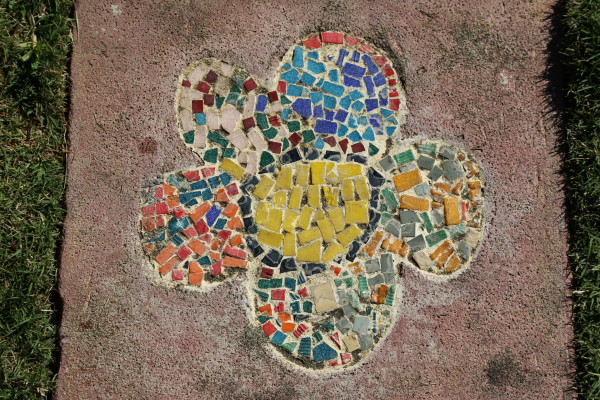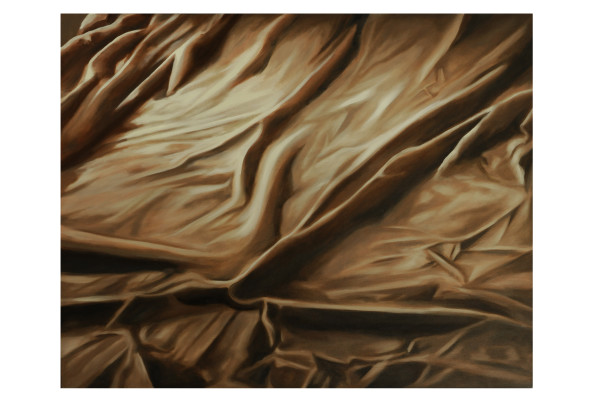-
Artist: Indra Geidans
Indra Geidens has been exhibiting in Western Australia since the 1980’s, and her work references domestic life in suburbia, the relationship we have with our bodies, the effects of ageing, vulnerability, and the ways we manipulate our appearance with clothing and fabric. Indra paints figuratively using acrylics in a realistic and sensitive manner, positioning subjects within everyday contexts in odd and offbeat postures to create surrealistic images. The works are often somewhat absurd or unsettling, where banal domestic scenes are given an impalpable edginess. In one work, a woman dangles awkwardly from a backyard colour-bond fence, in another, from a Hills-Hoist, and in yet another, we see an old woman, conservatively dressed, on her hands and knees, reaching for a pair of garishly colored g-string undies. Geidens’ paintings invariably feature fabrics and clothing in some form. She seems preoccupied with the visual appeal of fabric and flesh; fabric that is billowing, skirts pulled up over the body, stockings stretched, garments pulled tight across bodies.
The use of semi-transparent materials seems to be a motif or an ongoing concern also, and in this work, a solitary plastic bag wafts across a deserted car park, caught in an updraft, and frozen in a moment of material tension and grace, and a depiction of something that is at the same time, utterly hollow and ephemeral. The reference to the famous ‘plastic bag scene’ in the film American Beauty spring to mind, (the film in fact shares some common ground with Indra, in its exploration of themes such as beauty, youth, and suburban dreams, and the plastic bag in the film can be read as a symbol for finding poetry in the everyday). Indra’s work is also about that great Australian suburban dream, and in many other works she uses the motif of the hills hoist and the color-bond fence and sparse, clean lines; here the landscape could be a beach or a carpark.
This work continues Geidens’ exploration into domesticity, surburbia, beauty, and vulnerability. Geidans’ work is frequently quite confronting, and has an air of the tragic in it. This work is typically unsettling, and it is also an unusual departure from her figurative work as it contains no reference to the human form.


